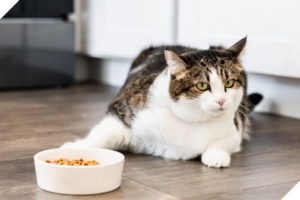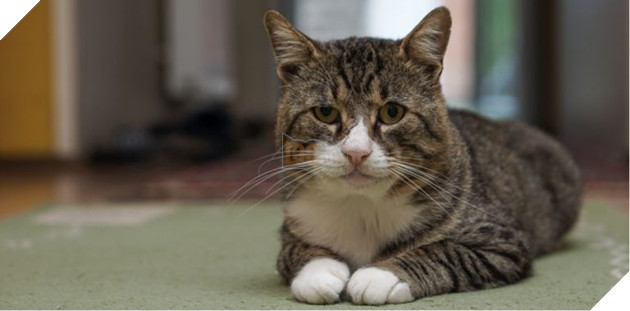
Photo by 99mimimi on Pixabay
As our beloved feline friends age, they require additional care and attention to ensure their well-being and comfort. With advancements in nutrition, indoor living, and veterinary medicine, cats are living longer lives, with some reaching their twenties. However, just like humans, older cats may experience certain changes and conditions that require special care. In this article, we will explore the best practices for providing extra tender loving care to your aging cat.
Regular Veterinary Exams

Regular veterinary checkups are crucial for your older cat’s overall health and well-being. It is recommended to schedule six-month checkups for geriatric cats and yearly geriatric exams that include blood work and X-rays. These exams help detect any underlying health issues and allow for early intervention and treatment. Additionally, smaller checkups in between the yearly exams can help monitor your cat’s health more closely.
Creating a Comfortable Environment
Older cats tend to be less active and may experience changes in their behavior and physical abilities. To ensure their comfort, it is important to make certain adjustments in their environment. Here are some key considerations:
Warmth and Drafts
Cats seek out warm places to rest, so make sure your older cat’s favorite bed or resting spot is not in a drafty area of your home. However, be cautious of providing too much heat, as it can potentially harm a cat that may not be able to move quickly.
Easy Access to Basic Needs
As cats age, they may develop arthritis and have reduced control over their bladder and bowels. To accommodate these changes, it is recommended to install litter boxes on every floor of your home, making them easily accessible. Additionally, some older cats may have difficulty climbing into a regular litter box to defecate. In such cases, using a litter box with low sides or placing newspaper around the box can be helpful. Similarly, ensure easy access to food and water bowls by placing them in multiple locations throughout your home.
Assisting Mobility
If your older cat struggles to reach their favorite spots, such as windowsills or furniture, consider creating box steps, ramps, or purchasing pet stairs. These aids provide firm footing and ensure your cat can safely reach their desired areas.
Grooming and Hygiene

Proper grooming is essential for older cats, especially if their self-grooming habits decline. Gently brushing or combing your cat’s fur not only removes loose hairs but also stimulates circulation and sebaceous gland secretions, restoring luster to their coat. Pay extra attention to longhaired cats, as they are more prone to matting.
Catering to Sensory Changes
As cats age, they may experience changes in their vision and hearing. Here are some tips for accommodating these changes:
Vision Impairment
For cats with poor vision or eyesight problems, nightlights can help them navigate in low-light conditions. Additionally, if your cat is blind, it is important to keep their environment as consistent as possible to avoid disorientation. Try to avoid sudden movements or changes and call their name before approaching them.
Hearing Loss
Approach cats with hearing problems from the front rather than behind to prevent startling or scaring them. Keeping your cat safely inside can protect them from potential dangers, such as cars or predators.
Encouraging Playfulness
While older cats may naturally become less active, it is important to encourage gentle play and exercise to keep them mentally and physically stimulated. Here are some ideas to promote playfulness in your aging cat:
Gentle Interactive Play
Instead of introducing a young kitten to rejuvenate your older cat, find gentle ways to engage them in play. Waving a wand, going for a walk inside your home, or playing “chase the kibble” can be enjoyable activities for your cat.
Avoid Neglecting Senior Cats
It is crucial to remember that older cats still desire attention and interaction. Avoid focusing solely on a new, younger cat and neglecting your aging feline companion. Make time for individual play and bonding sessions with your older cat.
Proper Nutrition and Hydration

Good nutrition is vital for cats of all ages, but it becomes particularly important for older cats. Consult your veterinarian to choose a diet that provides appropriate nutrition and the right amount of calories for your aging cat. It is also important to ensure easy access to clean water, as kidney function often deteriorates in older cats. Mixing canned and dry food can help increase water intake.
Sticking to Routines
Older cats thrive on predictability and routine. As they age, changes can be more challenging for them to adapt to. Try to maintain consistent daily routines and avoid unnecessary disruptions. This stability provides reassurance and helps them feel secure.
Extra Emotional Support
As cats age, they may become more dependent on their human family members and require additional emotional support. Some older cats may seek more attention, while others may prefer solitude. Pay attention to your cat’s individual needs and provide them with the love and care they require.
In conclusion, caring for an elderly cat involves providing extra attention and tailored care. Regular veterinary checkups, creating a comfortable environment, grooming assistance, accommodating sensory changes, encouraging playfulness, ensuring proper nutrition and hydration, sticking to routines, and offering emotional support are all essential aspects of caring for an aging cat. By implementing these tips, you can help your beloved feline friend enjoy their golden years with comfort and happiness.
Additional Information: Remember to monitor your cat’s weight and consult with your veterinarian if you notice any significant changes. Weight loss or gain can be an indication of underlying health issues that need to be addressed.

